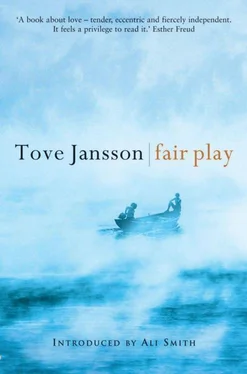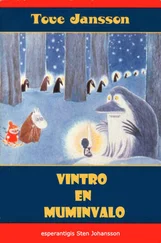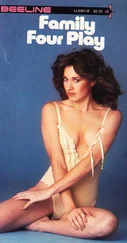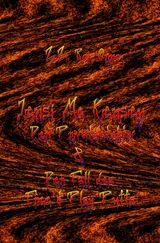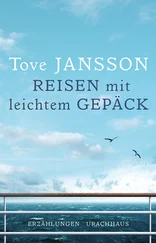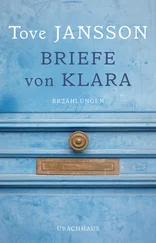“But you don’t have to get meals for her, I hope.”
“No, no, I told you. Just coffee.”
Once, when Mari went over to Jonna’s on the wrong day to borrow a pair of pliers, she walked right into a coffee break. There were two kinds of salad, Camembert, and small pasties. And the beef that Mari and Jonna were supposed to have the next day had been cut into elegant strips and decorated with parsley. On top of it all, Jonna had lit a candle on the table. They all had coffee. Demonstratively, Mari ate nothing. Mirja was extremely taciturn. After a while, she started drawing on her paper napkin with a charcoal pencil.
“What is that?” Mari asked.
“A sketch.”
“Oh, yes, a sketch,” Mari said. “That reminds me of art school. Everyone would go for coffee around the corner, and they’d sit and scratch something on their cigarette packs and say they’d had an inspiration. Well, well. How nice that some things don’t change.”
Jonna turned to Mirja. “You like the salad? Why don’t you take it home?”
And the salad was packed in a plastic container, and, moreover, Mirja was given half the cheese and a jar of raspberry jam. When she’d gone, Mari said, “Doesn’t she ever smile?”
“No. But she’s making some progress. One has to be patient.”
Mari said, “She’s going to get fat if she goes on like that. Did you see what she put away?”
“Young people are hungry,” said Jonna severely. “And I was just as shy when I was young.”
“Ha!” said Mari. “She’s not shy; she just won’t bother trying to be pleasant. She thinks it’s artistic to be gloomy. Can you show me any of her work?”
“No, not yet. She’s finding her way.”
Time passed, and Mari’s irritation grew. The coffee threesomes had become a recurring, awkward phenomenon, but Mari couldn’t keep from going over to see with her own eyes how shamelessly Jonna was spoiling her protégée. “Mirja, it’s so cold out. Why don’t you have a cap? I’ve told you you need a cap. Borrow mine.” “Mirja, here’s a list of the exhibits you should see.” “Here’s the recipe for that salad. You could make it yourself.” “Here are some books on graphic techniques; you ought to look at them…” It was incomprehensible that Jonna, who could be so chilly and distant, was now suddenly being a perfect wet nurse to a person who, in Mari’s opinion, lacked every ounce of common civility, let alone charm.
Once, unforgivably, when Mari was alone in Jonna’s studio, she turned over an aquatint that Mirja had done. It wasn’t much good.
Autumn wore on. Jonna had set aside her own work and started building bookshelves that she didn’t need. Mirja came regularly and was always equally hungry and dreary. One day Mari discovered that Jonna had begun giving Mirja vitamins, in a nice little bottle on the worktable.
“I see you’re taking very good care of your daughter’s health,” Mari observed. “And you’ve put them in my bottle.”
“Not at all — it’s just a bottle like yours. You had yours this morning. Don’t be childish.”
And Mari went straight out, closed the door very slowly behind her, and stopped coming for coffee.
It was a sad time.
One evening in November, Mari came in and declared that now she wanted to see the worst movie Jonna could find: one with murders, preferably several. Jonna searched her video shelf. “Here’s one that’s pretty awful. I never dared show it to you.”
“Good. Put it on.”
When the movie was over, Mari drew a long breath. “Thank you,” she said. “That feels better. Funny that Johnson would get all sentimental at the last minute; it wasn’t his style at all. That homeless dog didn’t fit.”
“Of course it did. Johnson acts against his own true nature one single time, and you always have to pay for that. It was excellent bringing in an irrational detail. It would have been way too easy to have him simply bully his gang until they get rid of him.”
“He couldn’t help being the boss,” Mari said. “He was a born leader. I suppose it went to his head. But they couldn’t manage a single job without him telling them what to do… And what about afterwards?”
“No idea,” Jonna said. “They just had to do it themselves. Anyway, it’s only a B-movie. Maybe I’ll erase the whole thing.” She turned on the overhead light. “I was thinking of reading this evening. I don’t feel like talking.”
In the overhead light, the studio seemed oddly empty.
“Don’t tell me you’ve cleaned?” Mari said.
“No. Don’t you have anything to read? I’ve pulled out some books you might like. Short stories and stuff.”
The studio really was very empty. And Mirja’s smock was no longer hanging on its peg.
Mari opened one of the books. The evening was serene, no one called, the only sound was snowploughs rumbling along the street.
After a couple of hours, Jonna said, “I think I might take up lithography again. I mean, it’s a possibility.”
“Yes,” Mari said. “A possibility.”
“For that matter,” Jonna went on, “did I ever tell you how when I was young I just marched out of their art school in the middle of the term so I could do my own work?”
“Yes, you did.”
“Well, anyway, it was a real event in those days. A demonstration!”
“I know.” Mari turned a page in her book. “That teacher you had, your professor? The one who was so overbearing?”
“Mari,” said Jonna, “sometimes you’re really a little too obvious.”
“Do you think? But once in a while a person just needs to say what doesn’t need to be said. Don’t you think?”
And they went back to their reading.
THE ROOM HAD FOUR WINDOWS because the sea was equally beautiful in all directions. Now, as autumn approached, the island was visited by exotic birds on their way south, and it sometimes happened that they tried to fly right through the windows toward the daylight on the other side, the way they might fly between trees. The dead birds always lay with their wings spread wide. Jonna and Mari carried them down to the lee shore, where the landward breeze would carry them away.
Once Jonna said, “Now I understand what Albert meant when he said the lift of a hull is the same line you find in a bird’s wing. When he was building Viktoria .”
It had suddenly grown quite cold on the island. The wind had been rising all morning. Viktoria rode the swell inside the point, anchored on four lines. The way she always did in bad weather, of course, but they seemed to worry about her more every summer.
Jonna said, “I put new slip irons on her in May.”
“You did. And checked her lines.”
“Anyway, they said the wind would let up by evening.”
But the wind didn’t let up. Weather that keeps people from coming ashore or putting out to sea is good weather if you can pull your boat up on land. But they couldn’t do that. Viktoria was now too heavy for them to pull out of the water. With the natural ease of a well-built boat, she danced on the waves that swept around the point toward her bow as well as on the breakers that washed straight through the lagoon toward her stern. But this was no time for admiration.
Mari said, “They were both called Viktor.”
“What did you say?”
“That both our fathers were named Viktor.”
Jonna wasn’t listening. She said, “Go home and get warm until it’s your turn to stand watch.” And she stayed behind by the endangered boat and tried to think of a way of saving and preserving her. There had to be a way — maybe something very simple.
When it started to get dark, they traded places. Mari came down to the boat and Jonna sat down to draw new devices, possible new ways to bring Viktoria to safety in a storm. Trolleys and spars that couldn’t be built. A winch, just as bad. A system of davits, no better. She made sketch after sketch and then threw them all in the stove. But she went right on trying to think up new unthinkable devices.
Читать дальше
